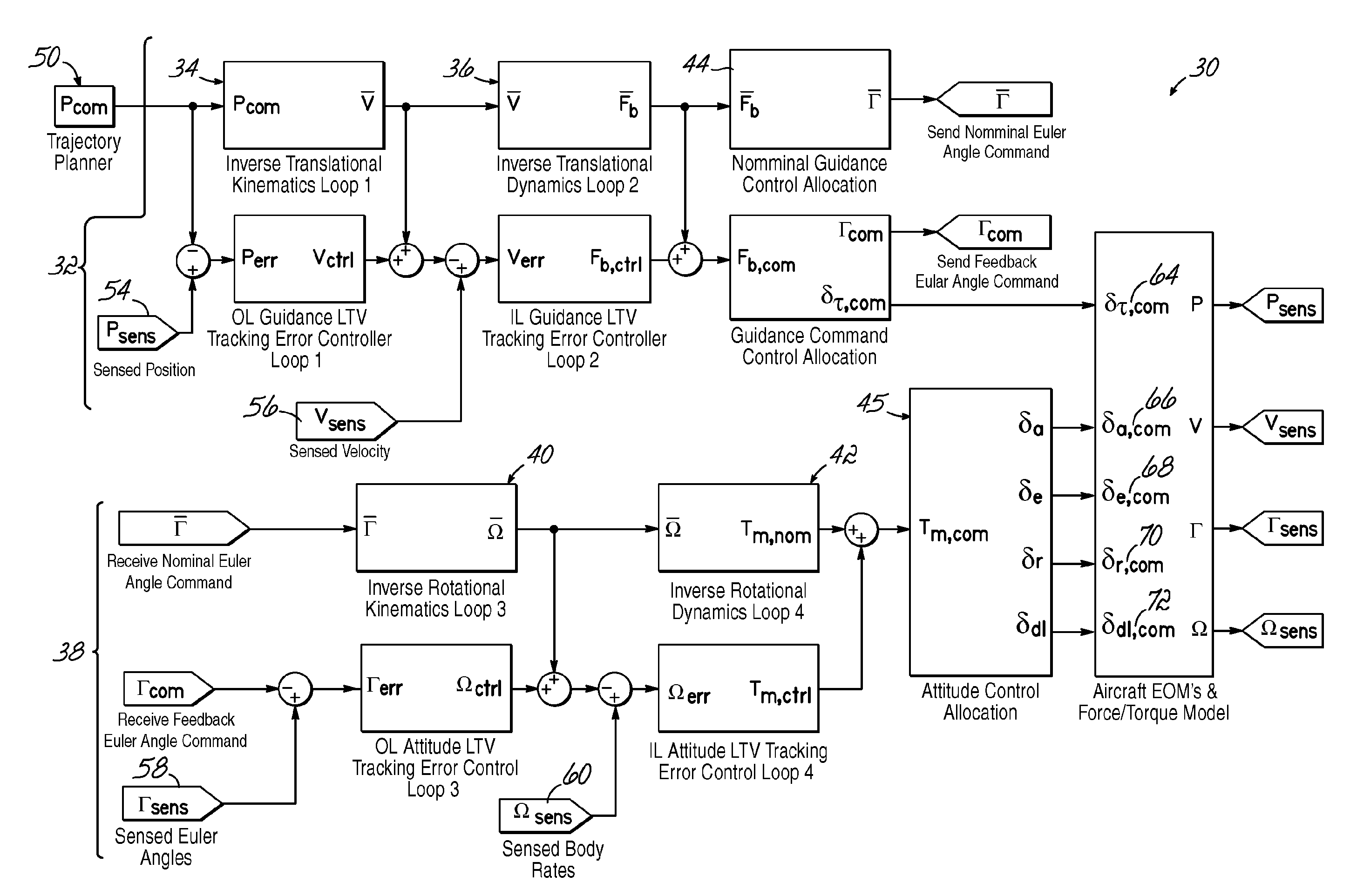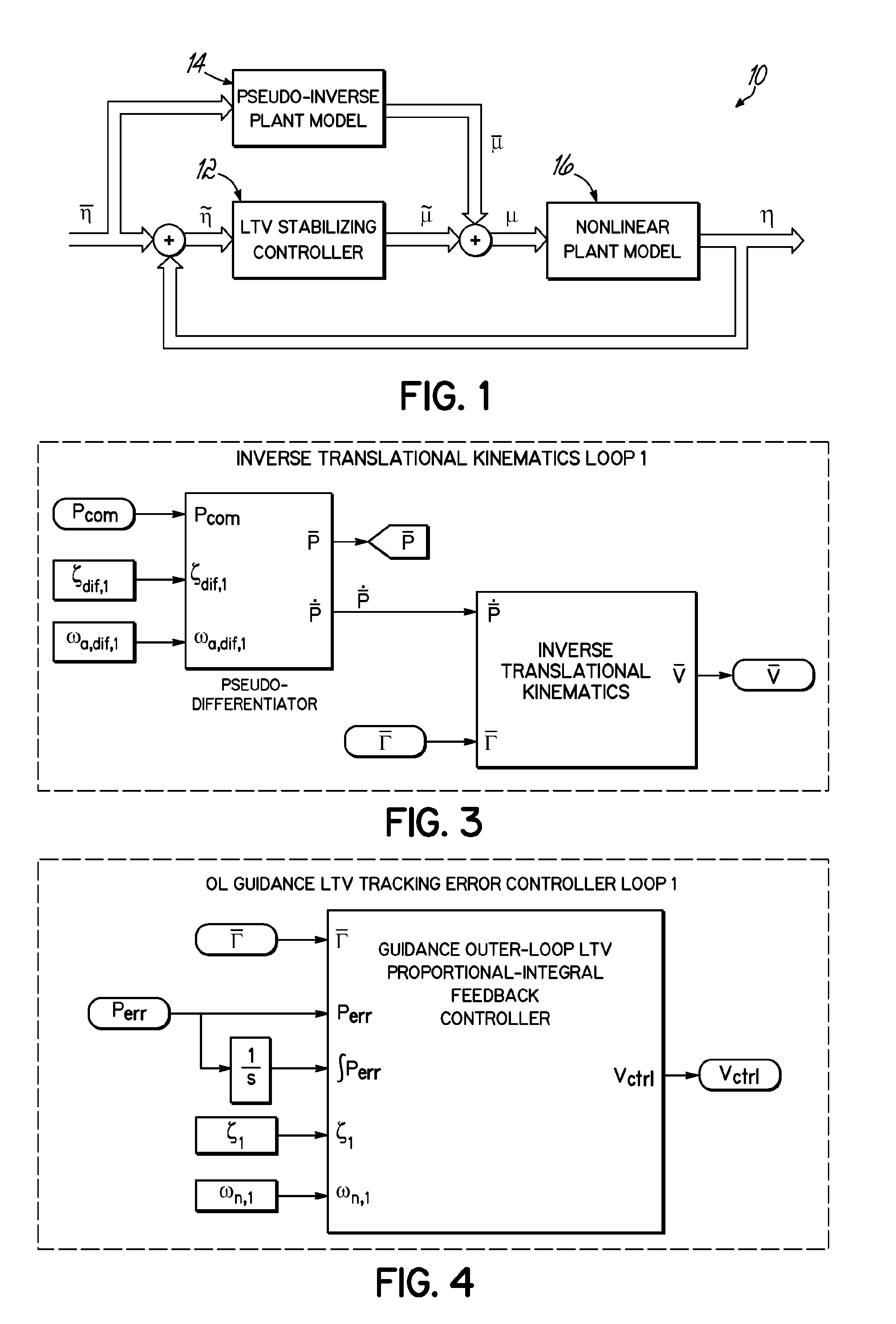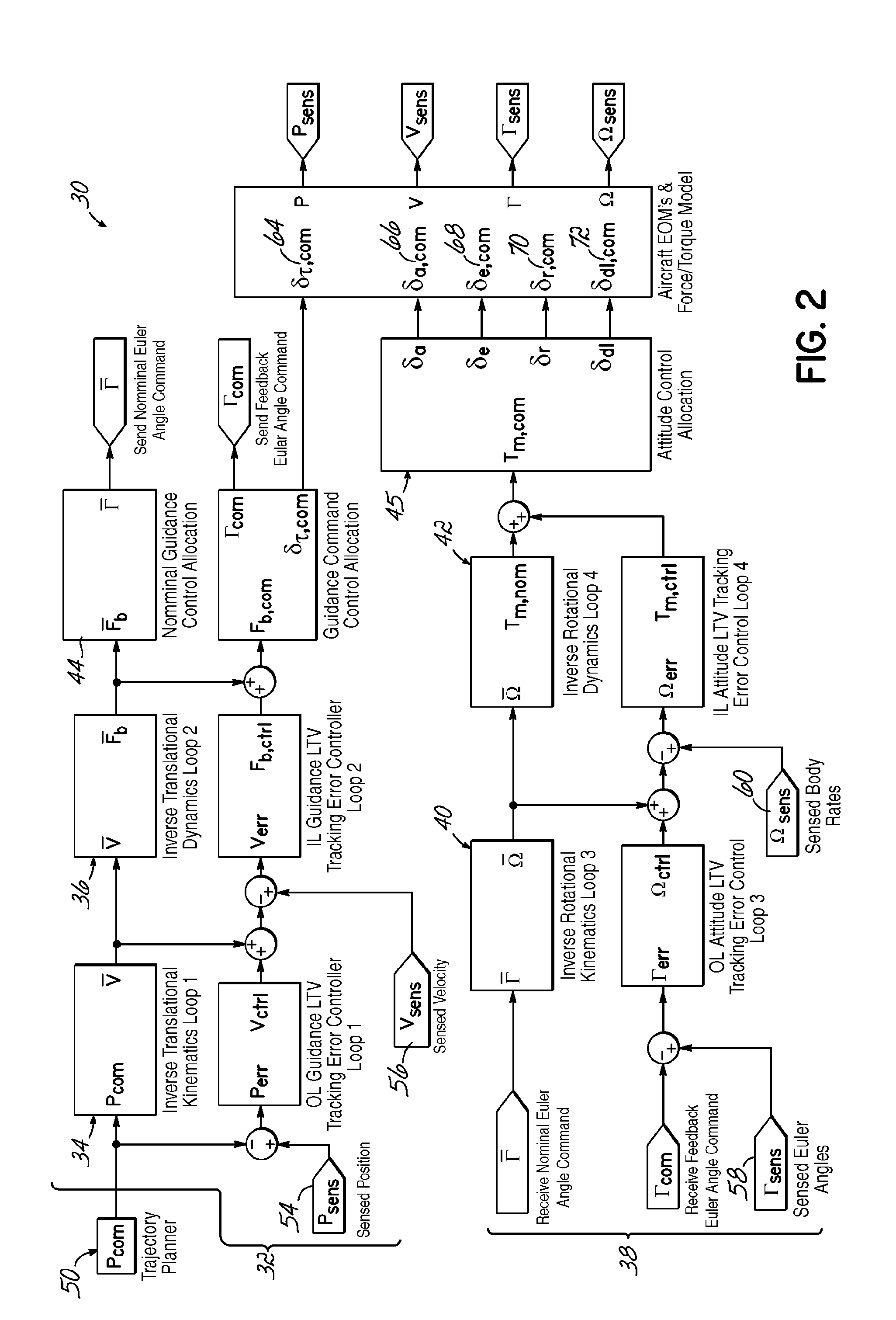[0008]The TLC architecture includes a processor and program code configured to execute on the processor to generate the control signal by determining in a first control loop a nominal body velocity vector and a feedback control body velocity command vector using the command position vector from the trajectory planner; determining in a second control loop a nominal Euler angle vector, a feedback control Euler angle command vector, and a throttle setting feedback control command using the nominal body velocity vector and the feedback control body velocity command vector from the first control loop; determining in a third control loop a nominal body rate vector and a feedback control body rate command vector using the nominal Euler angle vector and the feedback control Euler angle command vector from the second control loop; determining in a fourth control loop a moment command vector using the nominal body rate vector and the feedback control body rate command vector from the third control loop; and determining the control signal using the moment command vector from the fourth control loop.
[0009]In another aspect of this embodiment, the control signal is further generated by determining in the first control loop the feedback control body velocity command vector further uses a sensed position vector from the avionic sensor, determining in the second control loop the feedback control Euler angle command vector and the throttle setting feedback control command further uses a sensed velocity vector from the avionic sensor, determining in the third control loop the nominal body rate vector and the feedback control body rate command vector further uses a sensed Euler angle vector from the avionic sensor, determining in the fourth control loop the moment command vector further uses a sensed body rate vector from the avionic sensor.
[0010]The control signal includes an engine throttle, aileron, elevator, rudder, or a direct lift (such as a flaperon) deflection command. The aircraft may include an airframe and a control effector, where the control effector is adapted to receive the control signal from the control actuator. The control effector is an engine throttle, aileron, elevator, rudder, or flaperon.
[0011]The invention also contemplates a method of generating a control signal, the method comprising determining using a hardware implemented processor in a first control loop a nominal body velocity vector and a feedback control body velocity command vector using a command position vector for a fixed-wing aircraft from a trajectory planner; determining using the processor in a second control loop a nominal Euler angle vector, a feedback control Euler angle command vector, and a throttle setting feedback control command using the nominal body velocity vector and the feedback control body velocity command vector from the first control loop; determining using the processor in a third control loop a nominal body rate vector and a feedback control body rate command vector using the nominal Euler angle vector and the feedback control Euler angle command vector from the second control loop; determining using the processor in a fourth control loop a moment command vector using the nominal body rate vector and the feedback control body rate command vector from the third control loop; and determining using the processor a control signal using the moment command vector from the fourth control loop.
[0012]The method may also generate the control signal based in part on sensed parameters from an avionics sensor. Thus, the generating the control signal may involve determining in the first control loop the feedback control body velocity command vector further uses a sensed position vector from the avionics sensor, determining in the second control loop the feedback control Euler angle command vector and the throttle setting feedback control command further uses a sensed velocity vector from the avionic sensor, determining in the third control loop the nominal body rate vector and the feedback control body rate command vector further uses a sensed Euler angle vector from the avionic sensor, determining in the fourth control loop the moment command vector further uses a sensed body rate vector from the avionic sensor.
[0013]The invention also contemplates a program product comprising a computer readable medium and program code stored on the computer readable medium, the program code configured to execute on a hardware implemented processor to generate a control signal by determining in a first control loop a nominal body velocity vector and a feedback control body velocity command vector using the command position vector from a trajectory planner; determining in a second control loop a nominal Euler angle vector, a feedback control Euler angle command vector, and a throttle setting feedback control command using the nominal body velocity vector and the feedback control body velocity command vector from the first control loop; determining in a third control loop a nominal body rate vector and a feedback control body rate command vector using the nominal Euler angle vector and the feedback control Euler angle command vector from the second control loop; determining in a fourth control loop a moment command vector using the nominal body rate vector and the feedback control body rate command vector from the third control loop; and determining the control signal using the moment command vector from the fourth control loop.
 Login to View More
Login to View More  Login to View More
Login to View More 


